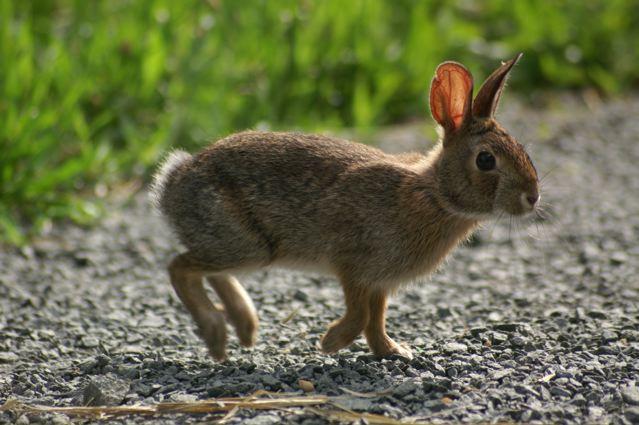Wildlife North America . com North American Animals - mamals, birds, reptiles, insects |
New England Cottontail (Sylvilagus transitionalis)
Juvenile New England cottontail GNU Free Documentation License. (view image details)
NEW ENGLAND COTTONTAIL FACTS
DescriptionThe New England Cottontail is very similar to the Eastern Cottontail, and it is very difficult to tell them apart by looking at them. The fur is gray brown above with white underside and white tail. The New England Cottontail is vulnerable and conservation measures are being taken to protect it. Hunting has been restricted in some areas to protect the remaining population. Size Length: 40cm - 43cm. Weight: 0.9kg - 1.3kg Environment young forests with thick, tangled vegetation. Reduced extent of suitable thicket habitat is the main reason for the decline in numbers and range of New England cottontails. Food grasses, clover, herbaceous plants, and twigs when food is scarce Breeding A litter of 3 - 8 is born after gestation period of about 28 days. The young are naked and blind at birth and are weaned after about 16 days. Range areas of New England from southern Maine to southern New York Conservation Status The conservation status in the 2004 IUCN Red List of Threatened Animals is "vulnerable". Classification
Relatives in same Genus Swamp Rabbit (S. aquaticus) Desert Cottontail (S. audubonii) Brush Rabbit (S. bachmani) Eastern Cottontail (S. floridanus) Mountain Cottontail (S. nuttallii) Appalachian Cottontail (S. obscurus) Marsh Rabbit (S. palustris) Home | Mammals | Reptiles | Birds | Insects | Privacy Policy | Disclaimer | Contact Us |